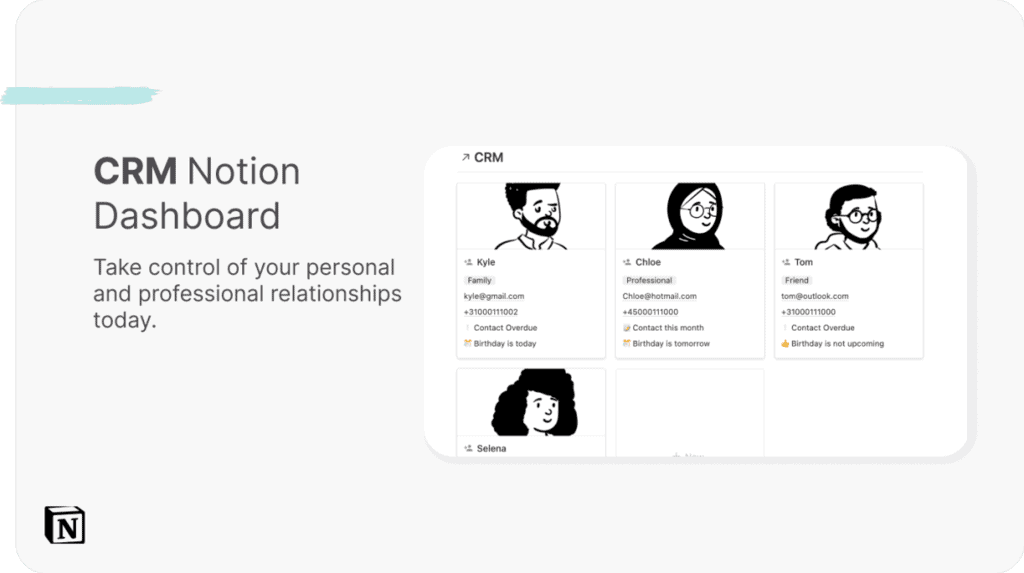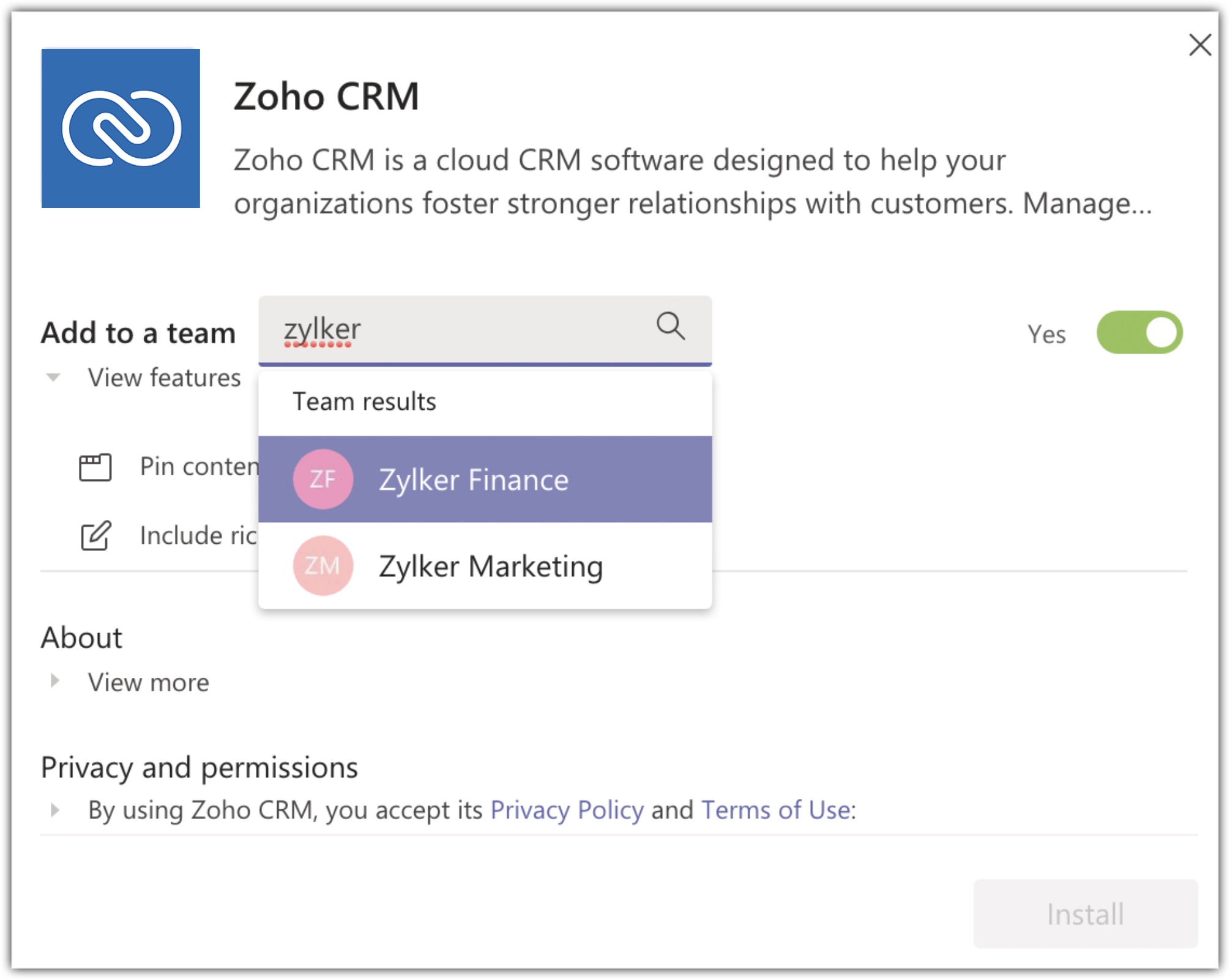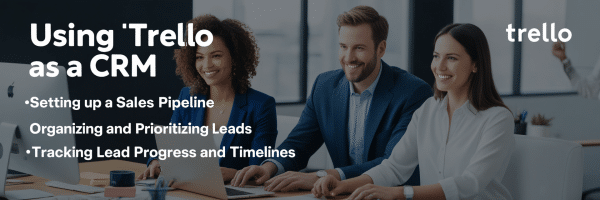Supercharge Your Sales: Creative CRM Marketing Campaign Ideas to Boost Conversions
In today’s competitive business landscape, a well-executed CRM marketing campaign is no longer a luxury; it’s a necessity. Customer Relationship Management (CRM) systems have evolved into powerful tools, offering businesses unparalleled insights into their customer base. But simply having a CRM isn’t enough. You need a strategy, a plan of action, and most importantly, brilliant ideas to turn those insights into tangible results. This article dives deep into the world of CRM marketing, providing you with a treasure trove of creative campaign ideas designed to captivate your audience, nurture leads, and ultimately, drive conversions. We’ll explore a variety of tactics, from personalized email sequences to targeted social media campaigns, all designed to help you make the most of your CRM data.
Understanding the Power of CRM in Marketing
Before we jump into the campaign ideas, let’s briefly recap why CRM is so crucial for marketing success. At its core, a CRM system is a database that stores all your customer interactions and data. This includes contact information, purchase history, website activity, and communication logs. When used effectively, a CRM empowers marketers to:
- Personalize customer experiences: Tailor your messaging and offers to individual customer needs and preferences.
- Segment your audience: Group customers based on shared characteristics to create highly targeted campaigns.
- Automate marketing tasks: Streamline repetitive processes like email follow-ups and lead nurturing.
- Improve lead management: Track leads through the sales funnel and identify opportunities for conversion.
- Measure and analyze campaign performance: Gain valuable insights into what’s working and what’s not.
By leveraging these capabilities, you can create marketing campaigns that are more relevant, engaging, and effective. Now, let’s explore some innovative CRM marketing campaign ideas.
CRM Marketing Campaign Ideas: A Deep Dive
1. Personalized Onboarding Sequences
The first few interactions a new customer has with your brand are critical. A personalized onboarding sequence can make or break their experience. Instead of a generic welcome email, use your CRM data to create a series of emails tailored to each customer’s specific needs and interests.
Example: If a customer signs up for a free trial of your software, your onboarding sequence could include:
- A welcome email with a personalized video introduction from a member of your team.
- A series of emails highlighting key features relevant to their industry or role.
- Invitations to webinars or tutorials demonstrating how to use your product effectively.
- Check-in emails to address any questions or concerns they may have.
By providing valuable information and support from the outset, you can build trust and increase the likelihood of converting free trial users into paying customers.
2. Targeted Email Campaigns Based on Customer Behavior
Your CRM tracks a wealth of information about your customers’ online behavior. Use this data to create highly targeted email campaigns that address their specific needs and interests.
Example: If a customer browses a specific product category on your website but doesn’t make a purchase, you can trigger an automated email campaign that:
- Recommends similar products.
- Offers a limited-time discount on the items they viewed.
- Provides customer reviews or testimonials to build trust.
Similarly, you can send emails to customers who abandon their shopping carts, providing them with a gentle reminder and an easy way to complete their purchase. These targeted campaigns are far more effective than generic blast emails, as they show customers that you understand their needs and are committed to providing value.
3. Loyalty Programs and Rewards Campaigns
Loyalty programs are a fantastic way to incentivize repeat purchases and build long-term customer relationships. Your CRM can be the engine that powers these programs.
Example: You could set up a points-based system where customers earn points for every purchase, which they can then redeem for discounts, free products, or exclusive rewards. Your CRM can automate the process of tracking points, sending out notifications when customers reach milestones, and managing reward redemptions. You can also use your CRM to segment your loyalty program members based on their spending habits and offer them personalized rewards. For example, high-value customers could receive exclusive access to new products or special discounts.
4. Win-Back Campaigns for Lapsed Customers
Don’t let valuable customers slip away! A win-back campaign is designed to re-engage customers who haven’t made a purchase in a while.
Example: Identify customers who haven’t made a purchase in the last six months and create a targeted email campaign that:
- Reminds them of the value you provide.
- Offers a special discount or promotion.
- Highlights new products or services they may be interested in.
- Asks for feedback on their experience to identify areas for improvement.
Win-back campaigns can be surprisingly effective, as they show lapsed customers that you still value their business. By tailoring your messaging to their past purchase history and preferences, you can increase the chances of bringing them back into the fold.
5. Cross-Selling and Upselling Campaigns
CRM data allows you to identify opportunities to cross-sell and upsell to your existing customers.
Example: If a customer purchases a specific product, your CRM can suggest related products or accessories that complement their purchase. You can also use your CRM to identify customers who may be ready to upgrade to a more premium product or service. For instance, if a customer is using a basic version of your software, you could send them an email highlighting the benefits of the premium version, such as advanced features or increased storage capacity. The key is to provide relevant recommendations that add value to the customer’s experience.
6. Personalized Birthday and Anniversary Campaigns
Show your customers that you care by sending them personalized messages on their birthdays and anniversaries.
Example: Your CRM can automatically trigger an email on a customer’s birthday, offering them a special discount, a free gift, or a personalized message from your team. You can also send anniversary emails to celebrate the anniversary of their first purchase or their membership with your company. These campaigns are a simple but effective way to build stronger customer relationships and foster a sense of loyalty.
7. Event-Based Marketing Campaigns
Use your CRM to create campaigns around specific events, such as product launches, holiday promotions, or industry conferences.
Example: If you’re launching a new product, you can use your CRM to segment your audience and send targeted emails to customers who are most likely to be interested in it. You can also use your CRM to promote special offers during holidays, such as Black Friday or Cyber Monday. When attending an industry conference, you can use your CRM to identify attendees and send them personalized invitations to meet with your team or attend a special event. Event-based marketing campaigns are a great way to generate buzz, drive sales, and build brand awareness.
8. Customer Feedback and Survey Campaigns
Your CRM can be used to gather valuable customer feedback and insights.
Example: After a customer makes a purchase or interacts with your customer support team, you can automatically send them a survey to gather their feedback on their experience. You can also use your CRM to conduct more in-depth surveys to understand your customers’ needs, preferences, and pain points. This feedback can be used to improve your products, services, and overall customer experience. Furthermore, you can use this data to personalize future interactions.
9. Social Media Integration and Targeted Ads
Integrate your CRM with your social media platforms to create more effective marketing campaigns.
Example: You can use your CRM data to create targeted ad campaigns on platforms like Facebook and Instagram. For instance, you can upload a list of your customer emails to create a custom audience and target them with ads promoting specific products or services. You can also use your CRM to track customer engagement on social media and respond to their comments and messages. By integrating your CRM with your social media platforms, you can create a more cohesive and engaging customer experience.
10. Personalized Content Recommendations
Leverage your CRM data to recommend relevant content to your customers.
Example: If a customer has shown interest in a specific topic on your website or in your email communications, you can use your CRM to recommend related blog posts, articles, or videos. This personalized content can help you keep your customers engaged and informed, and it can also position you as a thought leader in your industry. Consider integrating your CRM with your content management system (CMS) to automate the process of recommending personalized content.
Best Practices for CRM Marketing Success
Implementing these campaign ideas is just the first step. To maximize your success, consider these best practices:
- Clean and Accurate Data: The foundation of any successful CRM marketing campaign is clean and accurate data. Regularly review and update your customer records to ensure that your campaigns are targeted correctly.
- Segmentation is Key: Don’t treat all your customers the same. Segment your audience based on their demographics, purchase history, behavior, and other relevant factors to create highly targeted campaigns.
- Personalization is Essential: Personalize your messaging and offers to individual customer needs and preferences. Use their name, refer to their past purchases, and tailor your content to their interests.
- Automation is Your Friend: Automate repetitive marketing tasks to save time and improve efficiency. Use automated email sequences, lead nurturing workflows, and other automation tools to streamline your campaigns.
- Track and Measure Results: Closely monitor the performance of your campaigns. Track key metrics such as open rates, click-through rates, conversion rates, and return on investment (ROI). Use this data to refine your campaigns and improve your results.
- Test and Optimize: Continuously test different variations of your campaigns to see what works best. Conduct A/B tests on your email subject lines, content, and calls to action. Use the results of your tests to optimize your campaigns for maximum effectiveness.
- Integrate Your CRM: Integrate your CRM with other marketing tools and platforms, such as your email marketing platform, social media platforms, and website analytics tools. This will allow you to get a more complete view of your customers and create more cohesive and effective marketing campaigns.
- Prioritize Customer Experience: Always put the customer first. Focus on providing value, building trust, and creating a positive customer experience. A happy customer is more likely to become a loyal customer.
- Stay Compliant: Be sure to adhere to all relevant data privacy regulations, such as GDPR and CCPA. Obtain customer consent before collecting and using their data.
- Training and Adoption: Ensure your team is properly trained on how to use the CRM and marketing automation tools. Promote adoption across departments to maximize the value of your investment.
Choosing the Right CRM System
The success of your CRM marketing campaigns is also dependent on the CRM system you choose. There are many options available, ranging from simple, affordable solutions to more sophisticated, enterprise-level platforms. When choosing a CRM, consider the following factors:
- Features and Functionality: Does the CRM offer the features you need to execute your marketing campaigns, such as email marketing, lead management, sales automation, and reporting?
- Scalability: Can the CRM scale to meet your needs as your business grows?
- Integrations: Does the CRM integrate with your existing marketing tools and platforms?
- Ease of Use: Is the CRM easy to use and navigate?
- Pricing: Is the CRM affordable and within your budget?
- Customer Support: Does the CRM provider offer good customer support?
Some popular CRM systems include:
- Salesforce: A leading CRM platform with a wide range of features and integrations.
- HubSpot: A user-friendly CRM with a strong focus on marketing automation.
- Zoho CRM: A versatile CRM with a variety of features and affordable pricing.
- Microsoft Dynamics 365: A powerful CRM platform that integrates with other Microsoft products.
- Pipedrive: A sales-focused CRM that’s easy to use.
Research different CRM systems and compare their features, pricing, and reviews before making a decision. Consider getting a demo or free trial to test the platform and see if it’s the right fit for your business.
Measuring the Success of Your CRM Marketing Campaigns
To gauge the effectiveness of your CRM marketing campaigns, it’s crucial to track several key performance indicators (KPIs). These metrics provide insights into how well your campaigns are performing and help you make informed decisions to optimize future efforts. Here are some essential KPIs to monitor:
- Click-Through Rate (CTR): The percentage of recipients who click on a link in your email. A high CTR indicates that your content and call-to-action are compelling.
- Conversion Rate: The percentage of recipients who complete a desired action, such as making a purchase, filling out a form, or requesting a demo. This metric is critical for measuring the overall effectiveness of your campaigns.
- Open Rate: The percentage of recipients who open your email. A high open rate suggests that your subject lines are engaging and that your audience is interested in your content.
- Customer Acquisition Cost (CAC): The cost of acquiring a new customer. This metric helps you understand the efficiency of your marketing spend.
- Customer Lifetime Value (CLTV): The predicted revenue a customer will generate over their relationship with your business. CLTV helps you assess the long-term value of your marketing efforts.
- Return on Investment (ROI): The profit generated from your marketing campaigns compared to the amount invested. ROI is a crucial metric for demonstrating the value of your CRM marketing efforts.
- Lead Generation: The number of new leads generated through your campaigns. This metric helps you assess the effectiveness of your lead nurturing efforts.
- Website Traffic: The amount of traffic driven to your website from your marketing campaigns. This metric helps you measure the impact of your campaigns on your online presence.
- Customer Retention Rate: The percentage of customers who remain loyal to your business over a specific period. This metric indicates the effectiveness of your customer relationship management efforts.
Regularly analyze these KPIs to identify areas for improvement. Use A/B testing to experiment with different subject lines, content, and calls-to-action to optimize your campaigns for maximum performance. By continuously monitoring and refining your campaigns, you can ensure that your CRM marketing efforts are driving tangible results and contributing to your overall business success.
The Future of CRM Marketing
The world of CRM marketing is constantly evolving. Staying ahead of the curve requires a forward-thinking approach and a willingness to embrace new technologies and strategies. Here’s a glimpse into the future of CRM marketing:
- Artificial Intelligence (AI): AI is already playing a significant role in CRM marketing, and its influence will only grow in the years to come. AI-powered tools can automate tasks, personalize customer experiences, and provide valuable insights into customer behavior.
- Hyper-Personalization: Customers expect personalized experiences, and CRM marketing will continue to evolve towards hyper-personalization. This involves using data to tailor every aspect of the customer journey, from the content they see to the offers they receive.
- Omnichannel Marketing: Customers interact with businesses across multiple channels, including email, social media, and messaging apps. CRM marketing will focus on creating a seamless omnichannel experience, where customers can seamlessly transition between channels.
- Data Privacy and Security: Data privacy and security will become even more critical in the future. Businesses will need to prioritize data protection and be transparent about how they collect and use customer data.
- Focus on Customer Experience: The customer experience will be at the heart of all CRM marketing efforts. Businesses that prioritize customer satisfaction and build strong relationships will be the most successful.
By embracing these trends, you can position your business for success in the ever-evolving world of CRM marketing. Stay informed, experiment with new strategies, and always put the customer first.
Conclusion: Unleash the Power of CRM Marketing
CRM marketing is a powerful tool that can transform your sales and marketing efforts. By implementing the creative campaign ideas discussed in this article, leveraging best practices, and staying ahead of industry trends, you can unlock the full potential of your CRM system. Remember, the key to success is to put your customers first, personalize their experiences, and continuously optimize your campaigns. Start implementing these ideas today, and watch your business flourish!



